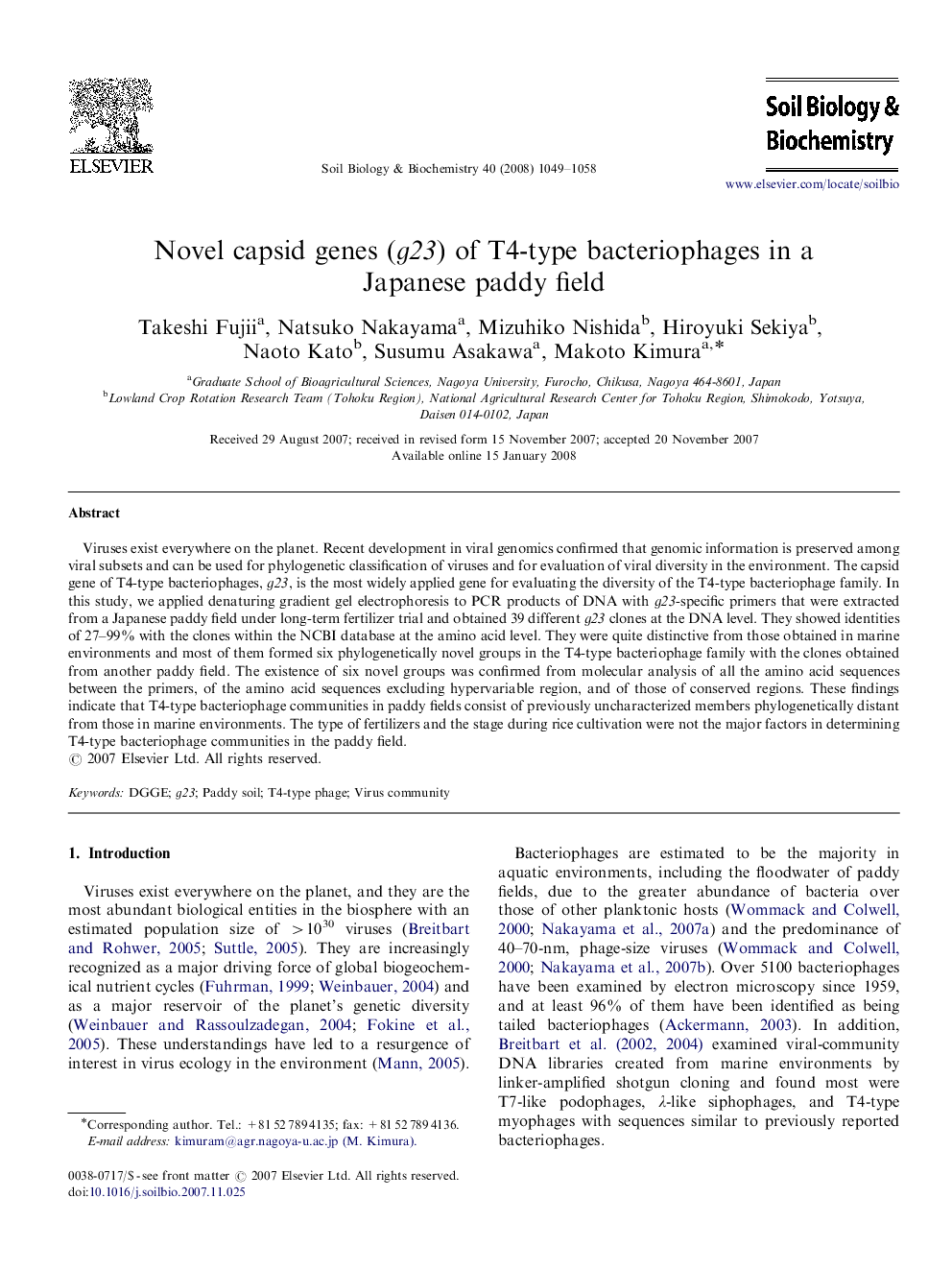| Article ID | Journal | Published Year | Pages | File Type |
|---|---|---|---|---|
| 2026021 | Soil Biology and Biochemistry | 2008 | 10 Pages |
Abstract
Viruses exist everywhere on the planet. Recent development in viral genomics confirmed that genomic information is preserved among viral subsets and can be used for phylogenetic classification of viruses and for evaluation of viral diversity in the environment. The capsid gene of T4-type bacteriophages, g23, is the most widely applied gene for evaluating the diversity of the T4-type bacteriophage family. In this study, we applied denaturing gradient gel electrophoresis to PCR products of DNA with g23-specific primers that were extracted from a Japanese paddy field under long-term fertilizer trial and obtained 39 different g23 clones at the DNA level. They showed identities of 27-99% with the clones within the NCBI database at the amino acid level. They were quite distinctive from those obtained in marine environments and most of them formed six phylogenetically novel groups in the T4-type bacteriophage family with the clones obtained from another paddy field. The existence of six novel groups was confirmed from molecular analysis of all the amino acid sequences between the primers, of the amino acid sequences excluding hypervariable region, and of those of conserved regions. These findings indicate that T4-type bacteriophage communities in paddy fields consist of previously uncharacterized members phylogenetically distant from those in marine environments. The type of fertilizers and the stage during rice cultivation were not the major factors in determining T4-type bacteriophage communities in the paddy field.
Related Topics
Life Sciences
Agricultural and Biological Sciences
Soil Science
Authors
Takeshi Fujii, Natsuko Nakayama, Mizuhiko Nishida, Hiroyuki Sekiya, Naoto Kato, Susumu Asakawa, Makoto Kimura,
